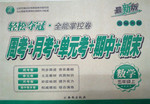题目内容
| Gallery Policies for Visitors to National Gallery of Art, Washington | |
| Visitors must present all carried items for inspection upon entry. After inspection, all bags, backpacks, umbrellas, parcels, and other things as determined by security officers must left at the checkrooms, free of charge, close to each entrance. All oversized bags, backpacks and luggage must be left at the checkrooms near the 4th Street entrance of either the East or West Building. These items will have to be x-rayed before being accepted items of value, such as laptop computers, cameras, and fur coats, may not be left in the checkrooms but may be carried into the galleries. We regret that we do not have enough space for visitor items larger than 17×26 inches into the Gallery or its checkrooms. Additional security procedures and checks may be taken according to the decision of the Gallery. | For the safety of the artworks and other visitors, nothing may be carried on a visitor’s back. Soft front baby carriers are allowed, but children may not be carried on shoulders or in a child carrier worn on the back. Pushchairs are available free of charge near each checkroom. Smoking is prohibited. Food and drink are not permitted outside the food service areas. Unopened bottled water may be carried only in a visitor’s bag. Cell phones may not be used in the galleries. Animals, other than service animals, are not permitted in the Gallery. Skateboarding is prohibited. Picture-taking (including video for personal use is permitted except in special exhibitions and where specifically prohibited. Tripods (三角架) are not allowed. Please do not touch the works of art. |
When people come to visit the Gallery, they should __________.
A. leave all their carried items at the checkrooms
B. have all their carried items x-rayed at the entrance
C. take all their carried items with them without inspection
D. have all their carried items inspected at the entrance
What does the Gallery feel sorry for?
A. Visitors have to keep their valuable items in the checkrooms.
B. The size of visitor items allowed into the Gallery is limited.
C. It cannot keep oversized visitor items due to limited space.
D. Visitor items over 17×26 inches must go through additional checks.
Parents with small children visiting the Gallery _____________.
A. can carry their children in soft front child carriers
B. can carry their children on their shoulders
C. can carry their children in child carriers worn on the back
D. ought to pay if they want to use pushchairs for their children
Visiting photographers should make sure that __________.
A. pictures and videos are allowed for personal use anywhere in the Gallery
B. pictures and videos can be taken in some places for personal use
C. picture-taking and videoing are totally forbidden in the Gallery
D. tripods are allowed except in some special exhibitions
【小题1】D
【小题2】B
【小题3】A
【小题4】B
解析:
【小题1】考点是:学生的细节查找能力。
根据文章首段第一句可知,游客们应在入口处对其所带物品接受检查,故答案为D项。
【小题2】 考点是:细节理解能力。
文章第二段明确指出:限于条件,美术馆没有足够的空间来容纳体积大于17×26英寸的物品,可知正确答案为C项。
【小题3】考点是:的细节理解能力。
根据文章第四段第二句soft front baby carries是可以被允许进入的,其他几项均表述错误。所以此题正确答案为A项。
【小题4】考点是:细节理解能力。
从文章倒数第二段可知,除去一些特别的展品和严格禁止的地方,只要是限于个人使用的拍照(或录像)是可以被允许的,可确定B项为最佳答案。

 轻松夺冠全能掌控卷系列答案
轻松夺冠全能掌控卷系列答案